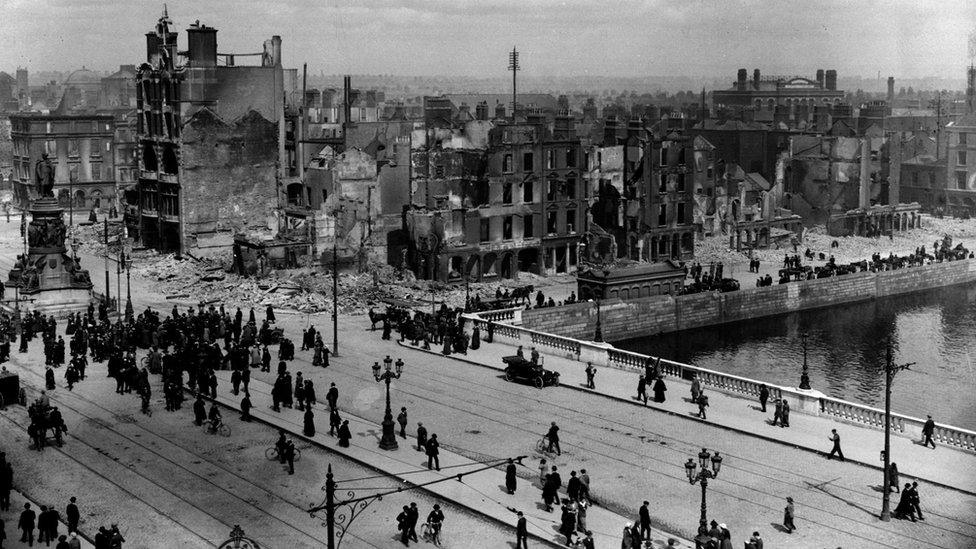Easter Rising: Remembrance wall unveiled in Glasnevin Cemetery
- Published
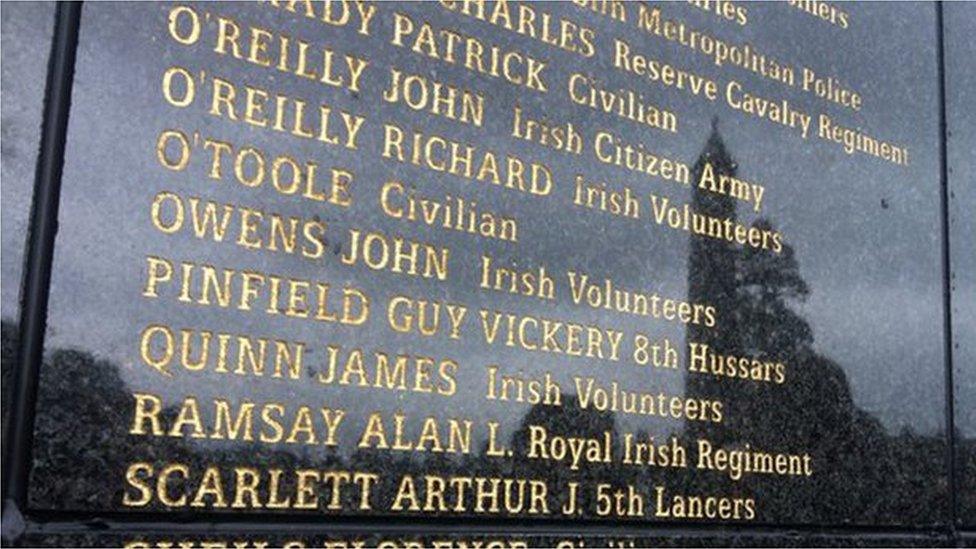
Almost 500 people were killed in the uprising, the majority of them - 268 - were civilians caught up in the violence
A remembrance wall showing the names of all those who died during the Easter Rising has been unveiled at Glasnevin Cemetery in Dublin.
The memorial wall bears the names of all those who died in the rebellion 100 years ago, Irish and British, military and civilian.
1916 relatives groups and some republican groups have criticised the decision to remember British forces alongside those who led the armed insurrection against British rule in Ireland.
A number of protesters gathered outside the cemetery on Sunday morning to demonstrate as the inter-faith service took place inside.
Emotional experience
The Glasnevin Trust said the memorial was an attempt to present the historical facts, without hierarchy or judgement.
George McCullough, chief executive of The Glasnevin Trust, said it was an emotional experience for many of those who had lost loved ones in the Easter Rising.
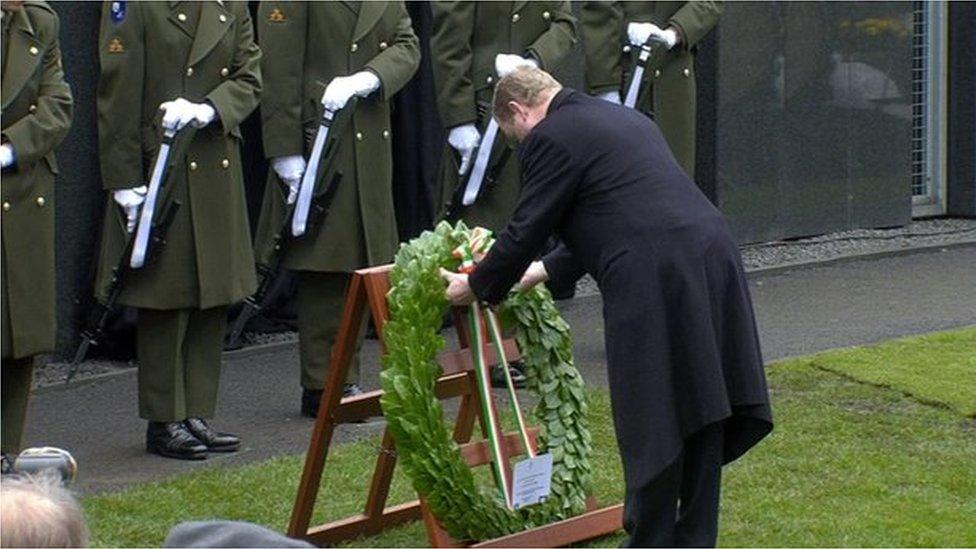
Enda Kenny laid a wreath during the service
"Many people cried at the wall this morning seeing the names of their great grandfathers, their grandfathers and grandmothers, all on that wall," he said.
'Reconciliation'
"It is a very evocative piece of sculpture and it is there for you to take what you want from that.
"I suppose commemoration is one thing, but if it leads to reconciliation and leads to understanding and it leads to Irish people deciding how they want to go forward then I think we live in a much, much more mature society in 2016 than we even did in 2006."
Acting Taoiseach (prime minister) Enda Kenny laid a wreath during the service.
Lord Richard Dannatt, a former head of the British army, said "in the context of the memorial at Glasnevin", it was an appropriate way to remember the British soldiers who had died.
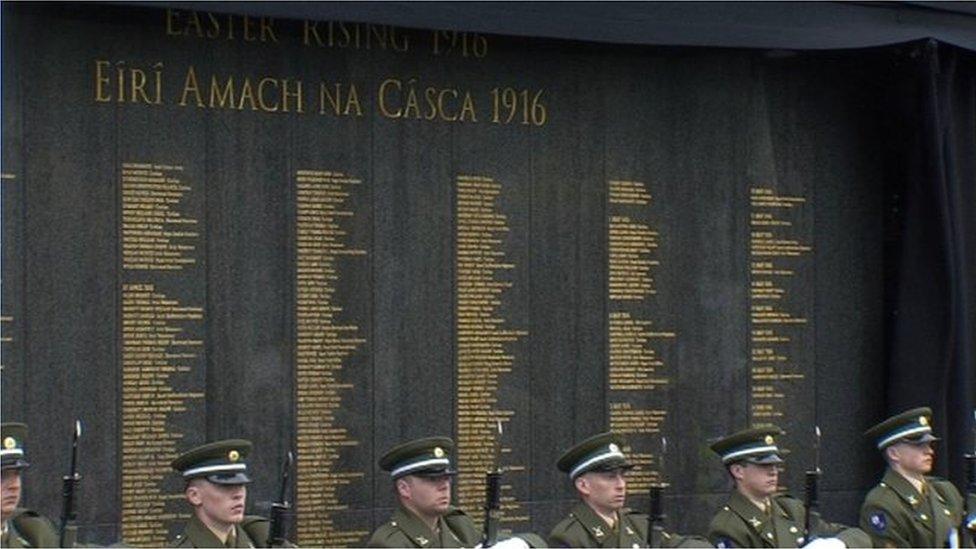
The names of those who died are displayed chronologically
"I think it's a very generous, a very inclusive and a very appropriate thing to do," he said.
"We've all moved on a long way in the last 100 years.
"I think if you just reflect on who those 116 British soldiers were, most of them were fairly young, most of them hadn't been in Ireland very long and actually, were as much victims of the violence that occurred at Easter 1916 as other people were."
Almost 500 people were killed in the uprising, the majority of them - 268 - were civilians caught up in the violence.
- Published1 April 2016
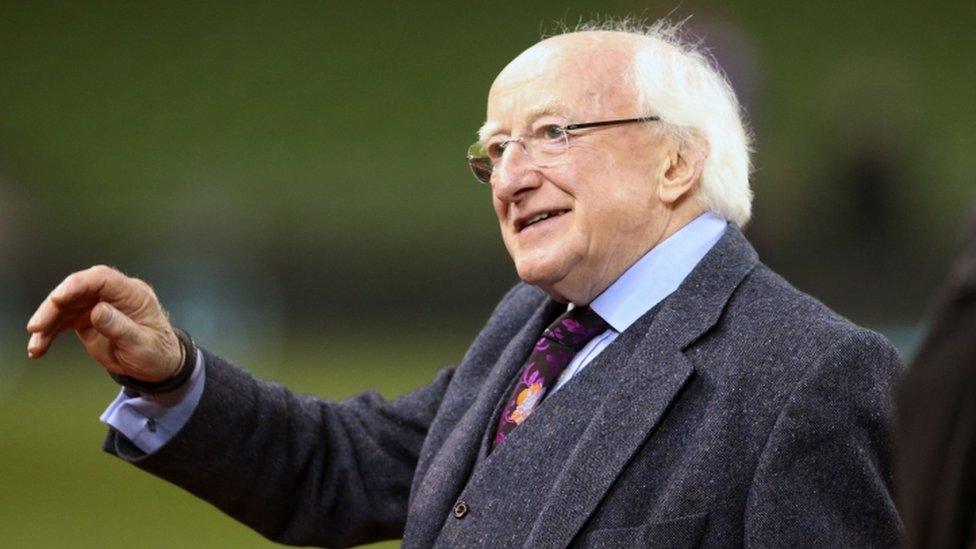
- Published26 March 2016
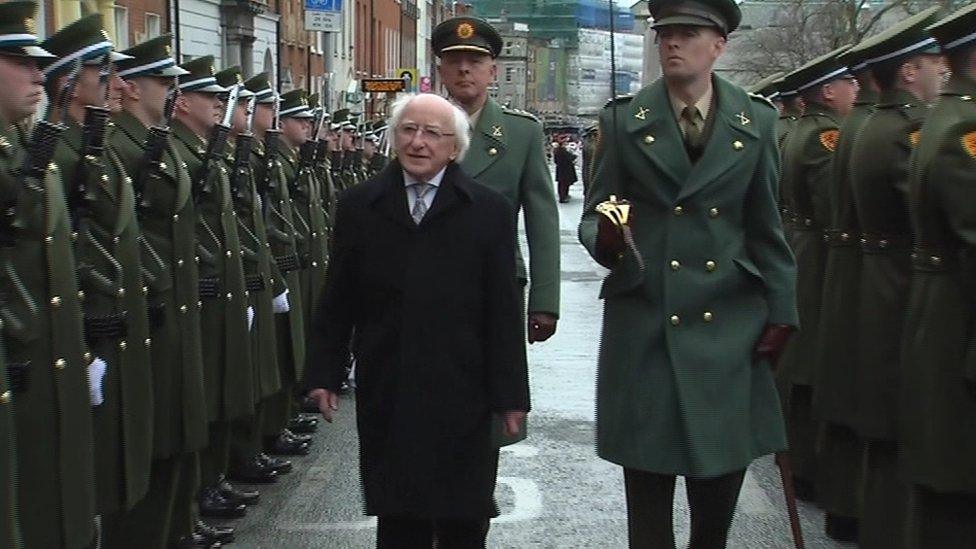
- Published26 March 2016
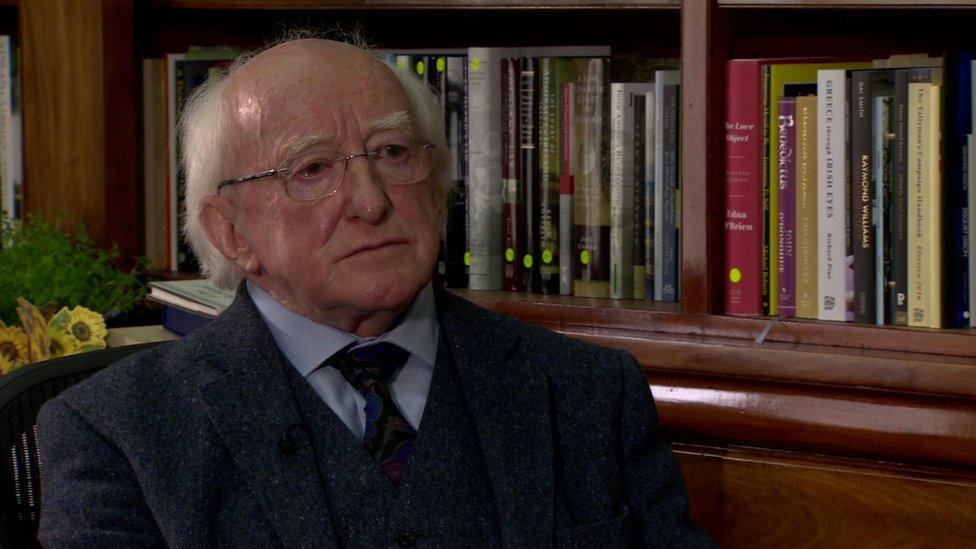
- Published23 March 2016
